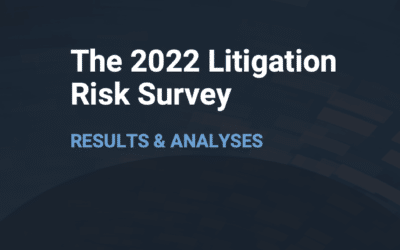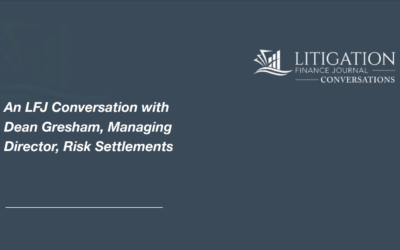The modern class action, now on the books for over fifty years, allows injunctive remedies under all three subsections of Rule 23(b). Injunctive remedies, requiring that a defendant alter one or more aspects of its business practices or offer claimants non-monetary compensation in exchange for the release of their claims, have become a regular feature in class action settlements.
Injunctive relief provisions, usually in combination with monetary damages, are attractive for a number of reasons. Retrospective injunctive relief is widely accepted across the class action litigation spectrum because it aims to remediate past known harms. Such relief could come in the form of repairs or recalls, changes in product design, manufacturing, warnings, labeling, or compliance-related obligations.
For classes comprised of repeat buyers of a product or service, prospective injunctive relief prevents the same harm from reoccurrence. Though incidental to the primary goals of class actions, such relief affects policy changes that can justify attorneys’ fees especially where monetary damages are small or nonexistent.
Injunctive Relief in Practice
Four recent decisions granting final approval of class-wide settlements illustrate the varying role injunctive relief plays in class action resolution. Whether the court: (1) found that injunctive measures were the only way to protect plaintiffs’ future interests (see In Re: Equifax Inc. Customer Data Security Breach Litigation); (2) found that unquantifiable injunctive relief was an adequate way to rectify class member injury (see Clapp et. al., v. Accordia Life and Annuity Co. and Alliance-One Services, Inc.); (3) recognized that injunctive relief was satisfactory as stand-alone relief (see Littlejohn et. al., v. Ferrara Candy Company); or (4) acknowledged that it comprised only a small component of a much larger settlement (see In Re: GSE Bonds Antitrust Litigation), injunctive remedies make or sweeten the deal for reviewing courts. Ideally for litigants, and as exemplified in the following cases, this means a total release of claims coupled with approval of attorneys’ fees.
In Re: Equifax Inc. Customer Data Security Breach Litigation, 1:17-md-2800, Dkt. No. 956 (N.D. Ga. January 13, 2020)
In September 2017, an estimated 147 million U.S. consumers had their personal information compromised in a cyberattack and data breach on Equifax, Inc. Consumers filed thousands of complaints that were consolidated before Judge Thomas W. Thrash Jr. of the United States District Court for the Northern District of Georgia. The parties agreed to a settlement in consultation with state and federal regulators in 2019.
Judge Thrash granted final approval of the settlement that allocated a minimum of $380 million into a common fund as the class benefit, $77.5 million of which was dedicated to attorneys’ fees. Equifax also agreed to pay up to $2 billion more for class member-elected credit monitoring and identity restoration services.
In terms of injunctive relief, the company agreed to comply with comprehensive data security requirements, to spend at least $1 billion on related technology over the next five years, and to subject itself to monitoring by a qualified third-party assessor. The court found that the $1 billion expenditure “benefits the class because it ensures adequate funding for securing plaintiffs’ information long after the case is resolved.”
Clapp et. al., v. Accordia Life and Annuity Co. and Alliance-One Services, Inc., 2:17-cv-02097, Dkt. No. 66 (C.D. Ill. June 23, 2020)
Purchasers of consumer life insurance policies filed suit against two insurance companies in pursuit of damages and injunctive relief after the companies’ migration to a new electronic administration system caused their policies to freeze and lapse during a host of “Conversion-Related Issues.” On June 23, 2020, the Illinois federal court granted final approval of the parties’ settlement and awarded $2.2 million as attorneys’ fees.
The settlement incorporated both monetary and non-pecuniary remedies for the nearly 500,000 class members. The injunctive relief included a 24-month grace period to repay missed premiums, back-dating of premium payments to enable policyholders to receive retroactive fixed interest, and automatic corrections of forfeiture or negative tax implication statuses.
The defendants also agreed to review their own records to ensure class member notification, dedicate 75 specially-trained employees to help claimants navigate the settlement and resolve policy issues, and conduct “independent policy testing,” a plan overseen by a third-party accountant to ensure adequate redress of customer issues.
Noting that the value of the settlement differs for each class member, and may be limited to injunctive relief for some, the court considered, “[w]hat is that relief worth? Peace of mind, $5, $10, or $20?” In concluding that though unquantifiable, the measures were “valuable, adequate, and fair,” the court wrote “[i]t is sensible that each class member will receive injunctive relief tailored to the type of Conversion-Related Issues they experienced, such as lapsed policies, lost benefits, etc. The settlement requires that relief to be provided.”
Littlejohn et. al., v. Ferrara Candy Company, 3:18-cv-00658, Dkt. No. 47 (S.D. Cal. June 17, 2019), affirmed 19-55805, Dkt. No. 40-1 (9th Cir. June 30, 2020)
In a recent food-labeling class action, defendant Ferrara Candy Company agreed to pay $272,000 in attorney’s fees, and remove its “no artificial flavors” label from its SweeTARTS candy following allegations that the product contained an artificial additive. The settlement provided no monetary compensation for the class. Instead, it afforded them the opportunity to “make a learned judgment” regarding whether to purchase the candy again in the future.
A single objector appealed. In an unpublished opinion, the appellate court rejected the objector’s merits arguments. The panel confirmed that the district court independently analyzed and corroborated the propriety of the attorneys’ fees award, acknowledged the lack of significant economic injury to class members, weighed the risk plaintiffs ran in taking the case to trial, and recognized the value of the injunctive relief to class members, some of whom were repeat purchasers.
In Re: GSE Bonds Antitrust Litigation, 1:19-cv-01704, Dkt. No. 430 (S.D.N.Y. June 16, 2020)
Institutional and individual investor plaintiffs brought a class action alleging an overarching conspiracy to fix prices of Government-Sponsored Enterprises (“GSE”) bonds, inflating the price of those purchased in the secondary market by members of the putative class. Defendants were sixteen major domestic and foreign banks engaged in GSE bond trading. In its June 16, 2020 order, the court for the Southern District of New York approved settlements with the thirteen remaining defendants, as well as $77.5 million in attorneys’ fees, resolving all claims in the dispute.
Though the bulk of the value of the $337 million settlement was cash, the settlement provided for non-monetary relief in the form of antitrust compliance and monitoring. This was particularly important, because, as the plaintiffs noted, class members “are limited to dealing in high-credit government securities due to statutory or other constraints, [and] need to have confidence that the GSE Bond market is free from collusion.” In turn, the defendants agreed to maintain a compliance program, and for 24 months confer with plaintiffs to consider and evaluate antitrust compliance best practices in the GSE bond market.
In a preliminary approval order, the court acknowledged that the “substantial antitrust compliance remediation measures… provide[] some additional value.” In its final approval order, the court granted a $300,000 service award to the class representative, the Pennsylvania Treasury, in part because of its role in overseeing future injunctive relief measures. The court wrote that the award was warranted because the Pennsylvania Treasury will “continue to be involved in supervising compliance measures that it helped to develop to ensure the continued integrity of the GSE bond markets.”
Conclusion
Regardless of industry or cause of action, injunctive relief has a solid place in class action settlements. Although determining its precise value can be difficult, the court in Accordia Life and Annuity Co. acknowledged that injunctive relief has context-dependent value, whether looking forward to prevent future harm, or backwards to remediate past harms. Accordingly, practitioners should consider structuring deals with non-monetary injunctive relief as a primary or secondary remedy in order to pass muster with the court, win approval of attorneys’ fees, and obtain a release of claims.







